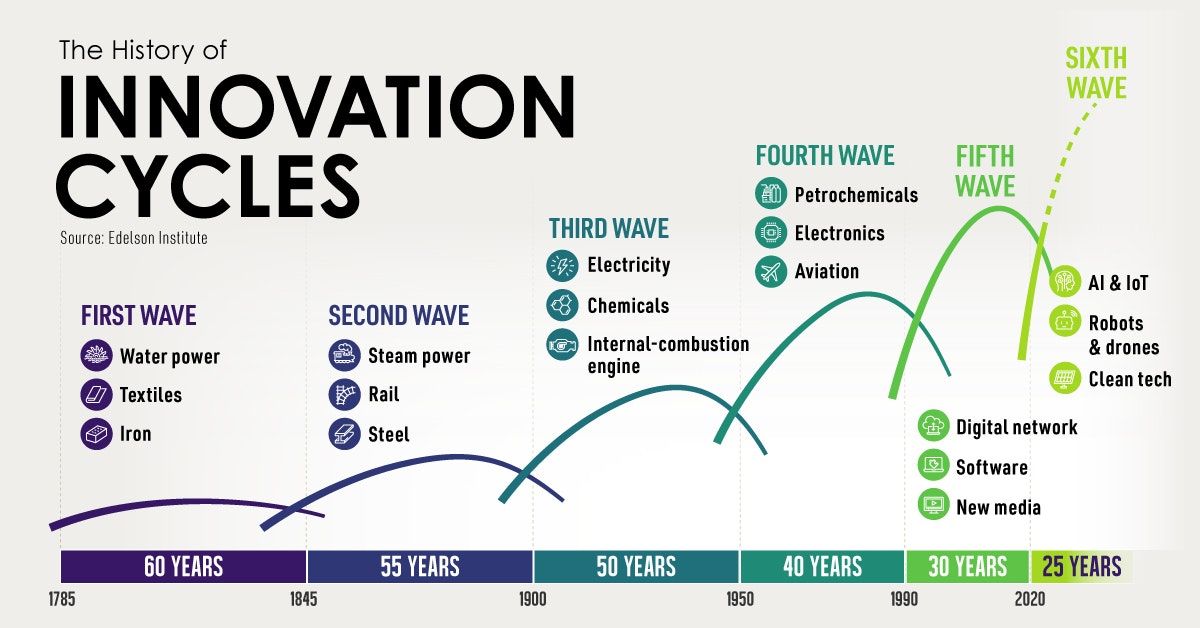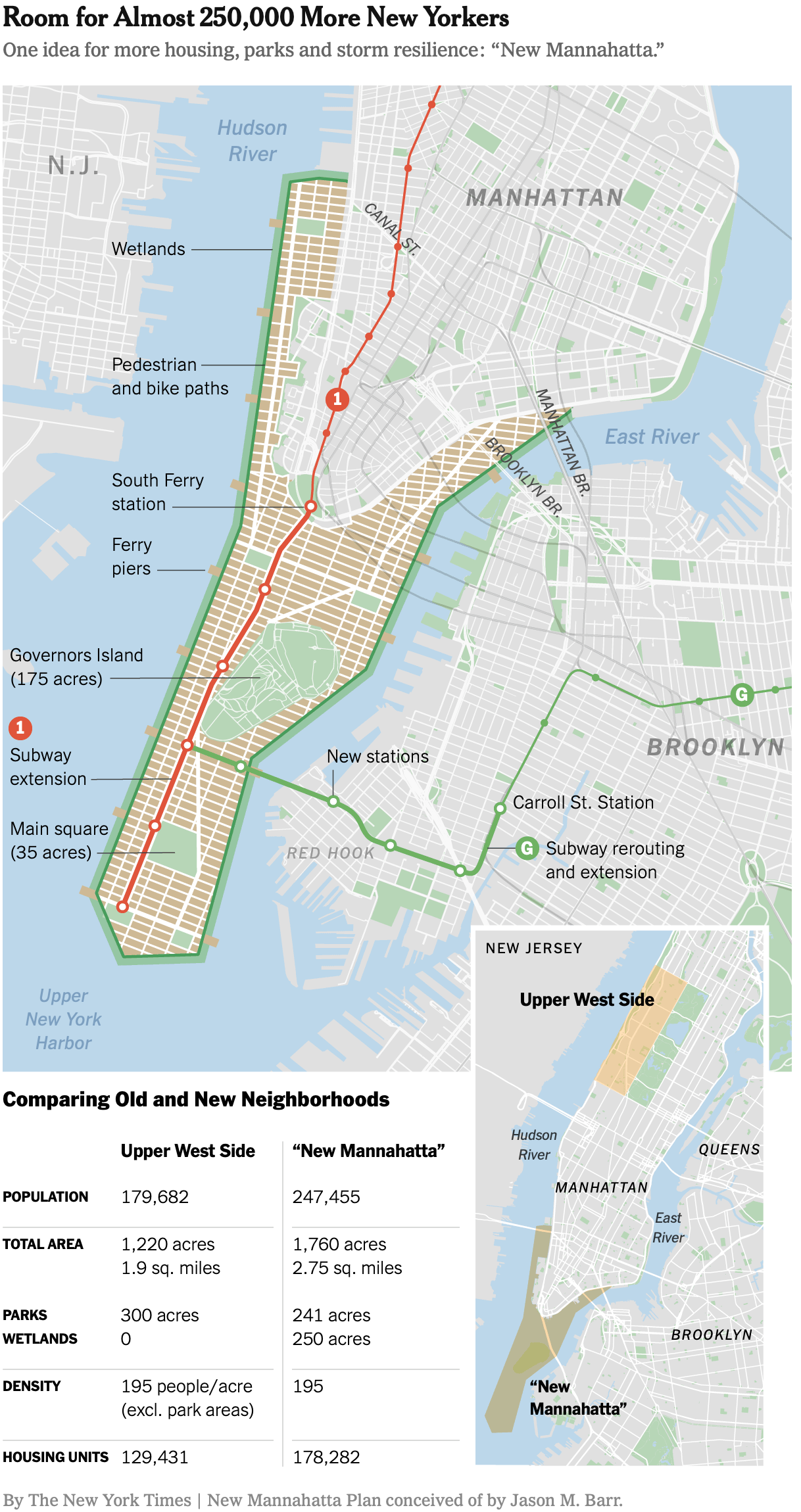Assorted Links Saturday
Employment, innovation, pizza, success, Manhattan, aerospace, semiconductors, proximity, and more.

Table of Contents
Workers are having their moment. How long can it last?
Most workers are benefiting from a tight labor market that developed during the nation’s recovery from Covid-19. Those in highest demand are in some cases the ones who started out further behind, with fewer gains before the pandemic. They include the young and the less educated, as well as those who work in lower-wage industries and perform blue-collar tasks. Many are based in the South. Wealthier, older, college-educated professionals in other parts of the country are also making gains. Wages are rising, and just about anyone who wants a job can get one in certain industries. The demand for labor is not expected to abate anytime soon.
The history of innovation cycles:

Pizza isn’t Italian: It's as American as Dixieland Jazz:
The first successful pizza restaurant in the world located outside of Naples was founded in Buenos Aires in 1882, when a Neapolitan immigrant baker named Nicolas Vaccarezza started selling the pies out of his shop in Boca.
I love finding New Yorker cartoons so dated that the joke is lost entirely and the cartoons become just descriptions of people doing normal things. pic.twitter.com/5fYHmDkRMl
— max saltman (@maxsaltman) February 1, 2022
There are only two things you need to do to be successful: Do something, and then tell people.
We need to make a bigger Manhattan: The proposal to extend Manhattan into New York Harbor by 1,760 acres.

Why it's hard to innovate in construction: Construction is a high dollar value, low profit margin, highly competitive industry - the potential rewards for someone who can find a cheaper, more efficient way of doing things is enormous.
America's aerospace industry is regenerating:
Traditional aerospace companies have a hoard of capital and talent, providing poor returns to customers. Startups are siphoning the best talent and raising money. Market potential and technology are converging to create an ecosystem that looks more like the aerospace industry pre-1970, including the exploding prototypes, crazy ideas, and swarms of new companies. That aerospace industry took us from the first flight to the moon in ~65 years. The latest batch yearns to take us further.
No permits, no chips:
The United States currently builds fewer fabs at a slower rate than the rest of the world. This post summarizes infrastructure investments and regulatory reforms that could make the United States a more attractive place to build new chipmaking capacity. The CHIPS Act aims to build more fabs in the U.S., but regulatory work at the federal, state, and local level is needed to ensure these facilities are built on time and on budget.
Why proximity matters -- it is who you know, and who you run into: Physical proximity is more important for meeting new people (with new knowledge) than for collaboration
Econ Dev Show Newsletter
Join the newsletter to receive the latest updates in your inbox.


